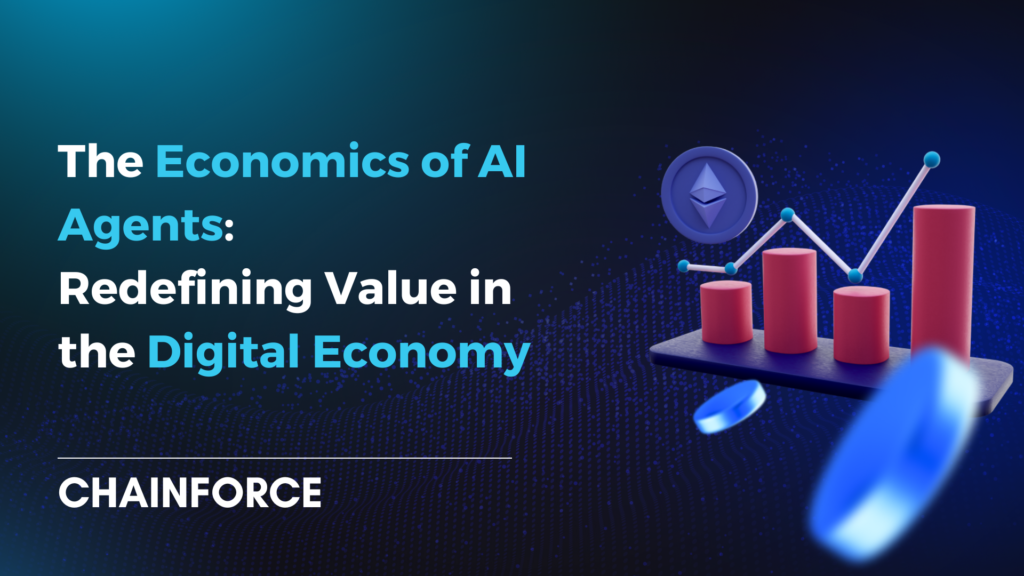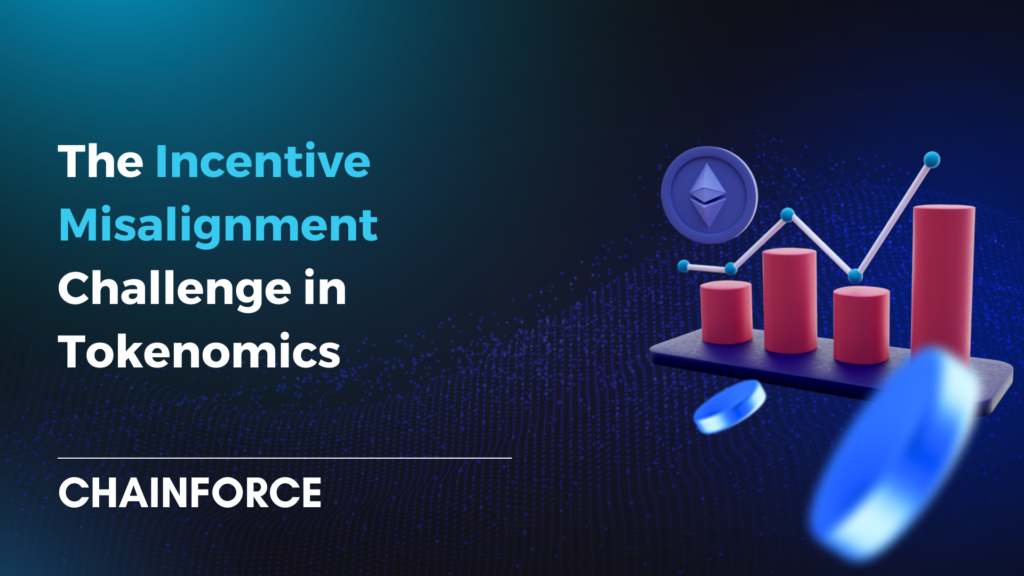Introduction
AI agents are rapidly emerging as powerful actors in digital economies (tokenomics), transforming how value is created, exchanged, and captured. These autonomous digital entities extend beyond mere automation, redefining workflows, managing decentralized systems, and even generating revenue independently. While the potential of AI agents is immense, their economic sustainability remains a pressing question. Without well-structured economic models, we risk falling into speculative cycles that lack long-term viability.
This article explores the economic implications of AI agents, their value propositions, market impact, and the potential risks that could shape their future trajectory.
AI Agents as Economic Entities
AI agents are autonomous digital actors capable of executing tasks, managing decentralized workflows, and interacting with users in real-time. Unlike traditional automation tools, these agents leverage artificial intelligence to adapt to complex environments, learn from interactions, and optimize their performance.
Key Characteristics of AI Agents:
- Autonomy: Capable of executing tasks without constant human intervention.
- Value Creation: Generate economic output through decentralized applications, smart contracts, and automated financial operations.
- Scalability: Can manage large-scale operations, including decentralized autonomous organizations (DAOs) and financial ecosystems.
A useful analogy is to consider AI agents as advanced Non-Player Characters (NPCs) in digital environments. However, unlike static NPCs, AI agents interact dynamically with market participants, autonomously executing complex economic functions.
Diverse Value Propositions
AI agents play both passive and active roles in the tokenomics and the broader digital economy, contributing to various economic functions:
Passive Roles
- Generating blockchain transactions and facilitating decentralized exchanges.
- Automating simple on-chain operations such as token swaps or transaction verification.
Active Roles
- Managing DAOs and decentralized governance mechanisms.
- Executing complex smart contracts with minimal human oversight.
- Engaging with online audiences, optimizing digital marketing strategies, and personalizing user interactions.
With continued AI advancements, these agents may take on more sophisticated responsibilities, such as handling cross-chain transactions, optimizing yield farming strategies, and autonomously managing digital funds.
Market Impact and Real-World Examples
Several projects have already demonstrated the economic impact of AI-driven agents:
- $GOAT MC: A crypto project that reached a peak market cap of over $500 million, highlighting the financial potential of AI-driven economic models.
- $VIRTUAL: A platform that enables the deployment of AI agents, driving user interaction and monetization in the AI economy.
- $LUNA: An AI-powered social media influencer with over 500,000 TikTok followers, illustrating how AI-driven content creation can generate significant engagement and revenue.
These examples underscore how AI agents are reshaping digital economies, but they also expose critical concerns regarding sustainability and speculation.
Tokenomics Concerns and Sustainability Risks
Despite their promising potential, AI agent economies face fundamental challenges that could undermine their long-term viability.
The Hot Potato Effect
The current economic model often resembles a “hot potato” game, where early adopters reap the highest rewards, while late entrants are left with devalued assets. This creates a system in which speculative momentum drives short-term gains, but long-term sustainability remains questionable.
Ponzi-Like Structures in Tokenomics model
Although not explicitly designed as Ponzi schemes, some AI agent economies exhibit Ponzi-like characteristics. If token value relies solely on attracting new entrants rather than generating real-world economic output, the system risks collapse when new participants stop joining.
Speculation vs. Real Value Creation
Speculative trading of AI-related tokens can drive initial market growth, but without tangible economic output, these models become highly volatile. Projects must demonstrate real-world applications beyond engagement metrics and social media reach to justify their long-term value.
Beyond Speculation: A Sustainable Tokenomics Model
To ensure long-term success, AI agents must transition from speculative hype to meaningful economic contributions. A sustainable model should include:
- Tangible Revenue Streams: AI agents must generate revenue through real services, such as managing DAOs, optimizing financial portfolios, or facilitating business operations.
- Token Utility: Tokens associated with AI agents should have intrinsic utility, such as governance rights, service access, or revenue-sharing mechanisms defined within their tokenomics model.
- Decentralized and Transparent Design: Economic models should be designed with transparency to prevent exploitative structures and ensure fair value distribution.
The Transformative Power of AI Agents in the Digital Economy / Tokenomics
Despite concerns, AI agents have the potential to revolutionize digital economies, also known as tokenomics. Their ability to automate complex workflows, enhance decision-making, and create autonomous revenue streams represents a major evolution in how we perceive value creation in decentralized ecosystems.
Potential Future Use Cases:
- AI-Powered Trading Agents: Algorithms that autonomously trade crypto assets based on market conditions.
- AI Governance for DAOs: Intelligent decision-making entities that enhance decentralized governance models.
- AI-Powered Marketplaces: Platforms where AI agents autonomously facilitate transactions, negotiations, and digital commerce.
Conclusion: Tokenomics of IA agents
The economics of AI agents are still in their early stages, and their long-term impact will depend on the development of sustainable models that go beyond speculative token cycles. While AI agents have the potential to redefine value creation in decentralized economies, their success hinges on creating real economic output and avoiding the pitfalls of speculative hype.
As the market matures, AI agents could become integral to the digital economy, revolutionizing how businesses operate, assets are managed, and decentralized networks function. Whether this potential materializes will depend on how well AI-driven economies are designed to sustain long-term value.
At Chainforce, we’ve helped over 100 clients design and validate sustainable token economic models for their tokenized businesses and helped them establish over $350M in market cap and liquidity. If you’re building or launching a tokenized business then book a consultation with Vincent, our founder, and let’s set your project up for long-term success: https://chainforce.tech/schedule-introduction/


